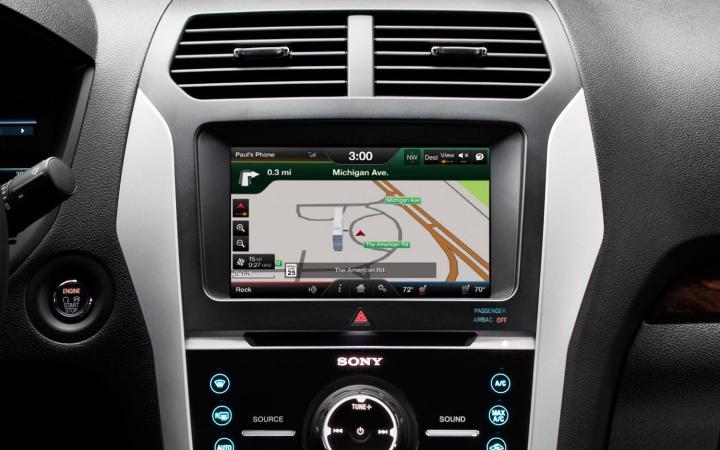
Developing technology that works flawlessly is expensive, but releasing a piece software with annoying glitches can cost even more. Ford has agreed to settle a class-action lawsuit filed by motorists who experienced problems with its early infotainment systems for $17 million, though it completely denies wrongdoing.
The plaintiffs all have one thing in common: They purchased or leased a Ford or a Lincoln vehicle between 2010 and August of 2013 equipped with a touchscreen-based software called MyFord Touch or MyLincoln Touch. The two systems are very similar, and they were available in a wide variety of models, including the Fusion, the MKX, and the MKZ. Ford and Lincoln often either charged extra for the feature, or made buyers step up to a more expensive trim level to unlock it.
The honeymoon period didn’t last long. According to the lawsuit, the software didn’t respond to voice commands, didn’t connect to the owner’s mobile phone, provided the wrong directions to the destination entered, froze, or crashed. While there’s no indication these problems caused crashes or injuries, they left many motorists without features that they paid for, including navigation. Bill Ford, a member of the Blue Oval’s founding family and its executive chairman, had to wait for his system to reboot before he could reach his destination. Mark Fields, Ford’s president, allegedly punched his touchscreen.
Ford asked Microsoft to help it fix the issues, and it rolled out several updates, but the problems continued for nearly two more years. The company’s modern-day infotainment systems are much better, considerably more reliable, and far easier to use, and it hopes the settlement will allow it to finally leave MyFord Touch and MyLincoln Touch behind.
Only residents of California, Massachusetts, New Jersey, Ohio, North Carolina, Washington, and Virginia are eligible to receive part of the $17 million settlement. Motorists who needed to get an infotainment-related problem fixed once can ask for $100. Those whose car went into the shop twice can receive $250. The poor souls who drove through the service department’s door three or more times can claim $400, and motorists whose software annoyed them but didn’t require repairs can get up to $45. Current and former owners have until September 24 to file a claim.
Editors' Recommendations
- Ford recalls nearly 1.9 million Explorer SUVs over safety issue
- Ford recalls 100,000 hybrid cars over fire risk
- Class-action lawsuit alleges TikTok steals data from minors
- Facebook forced to pay $550 million settlement over facial recognition lawsuit
- Ford Bronco breaks down in Baja, and SCG Boot nabs a class win first time out



